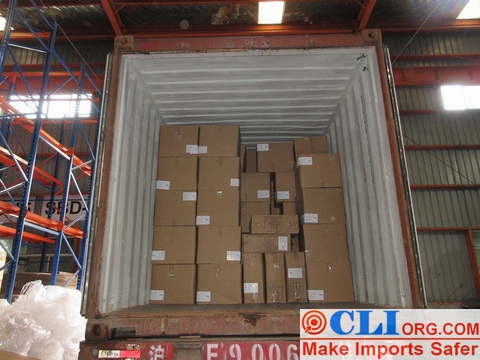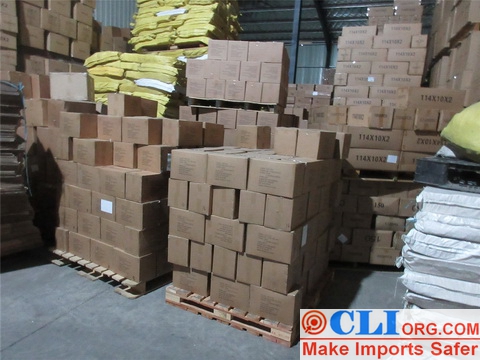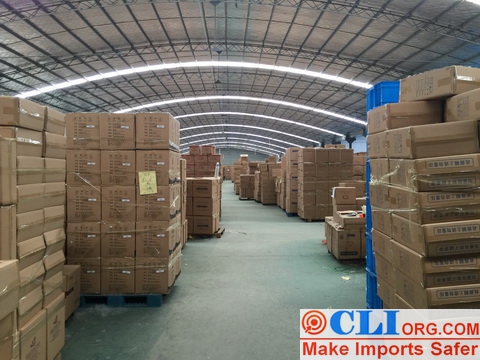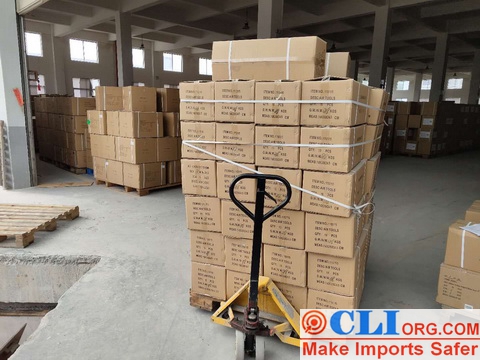If the Factory’s Cooperation is Poor, Does the Container Loading Proceed Normally?
By Scott Chin • 05/19 @ 8:35 • If the Factory’s Cooperation is Poor, Does the Container Loading Proceed Normally?已关闭评论
Container loading is the last checkpoint before the goods purchased by the importer leave China. At this time, the importer needs to ensure that the goods he purchased can arrive at the destination port on time. Normally, in order to prevent the factory or supplier from short loading or wrong loading, that is, risk of container loading, they will choose a regular third-party inspection company to help them control the loading site, ensure the correctness of the quantity of goods, and reduce the risk of container loading.

However, it is not just ask the third party to do the loading inspection,then can ensure that the goods will not be short-loaded. Risk of container loading comes from many sources, such as factory operations, warehouse management, and container loading workers. Based on CLI’s personal experience, the factory process is a key figure. In international trade, the sales staff is responsible for developing customers and following up customer orders. He is the person who is most familiar with the products and the most explicit customer requirements. Normally, before loading the container, he needs to provide a packing list to the CLI, but he does not calculate the container volume, and each time can only be based on the actual number of containers on site. The result is obvious, this batch of goods may be left in the factory due to space issues, so that the quantity requested by the customer can not be handed over to the final customer. If the management of the factory warehouse is very chaotic, it will be difficult to ensure that the remaining goods can enter the next batch of goods intact.


In addition to the duties of the factory business, the management of the warehouse cannot be ignored. CLI encountered such a warehouse, a real risk of container loading case. The customer told us in advance that after they received the goods, they found that 20pcs were missing, and we need to help them to confirm in the factory warehouse. In the end, it was really found in the warehouse. The person in charge of the factory responded that they did not know the existence of these 20pcs because they did not have the goods entry and exit management form, and the warehouse had only one staff member for all things. We know that the role of the warehouse is to standardize and place all customers’ goods neatly, and every time the goods entry and exit, the computer or paper documents are used to accurately record the quantity to ensure the standardized management of the warehouse. But this is only 70% of the factory warehouse can do, and the remaining 30% of the warehouse can only rely on the artificial memory of the warehouse manager. Once the memory is confused, the messy result can be imagined.

Judging from the CLI’s loading supervision experience, the smaller the factory, the more careful it is, because the factory’s cooperation in each link is not satisfactory. For such a factory, pre-shipment inspection is even more necessary. During the container loading supervision, CLI also sorted out corresponding solutions for factories of this service level to solve the risk of container loading for customers. We must understand the status of the factory in advance, including the loading time, the status of the container, and the cooperation of personnel. In particular, the factory must arrange for a person to check the goods together with the inspector, ensure that the quantity of goods entering each pallet of the container is correct, and fill in the form carefully so that subsequent problems can be checked again.
Importers not only need to request the factory to cooperate with third-party inspection in advance, but also choose a suitable third party inspection company, considering the risk of container loading at each level, so as to reduce the probability of short or wrong shipment of goods, so that your loading container can proceed normally.
This article is an original article for CLI Inspection, who is committed to providing high-quality product inspection technology and know-how sharing for global importers and retailers to make imports safer.
All rights reserved. The contents of this website provided by CLI Inspection may not be reproduced or used without express permission.
For reprint, please contact with CLI Inspection, thank you.
Senior professionals in the field of quality inspection are committed to finding and sharing valuable experiences.